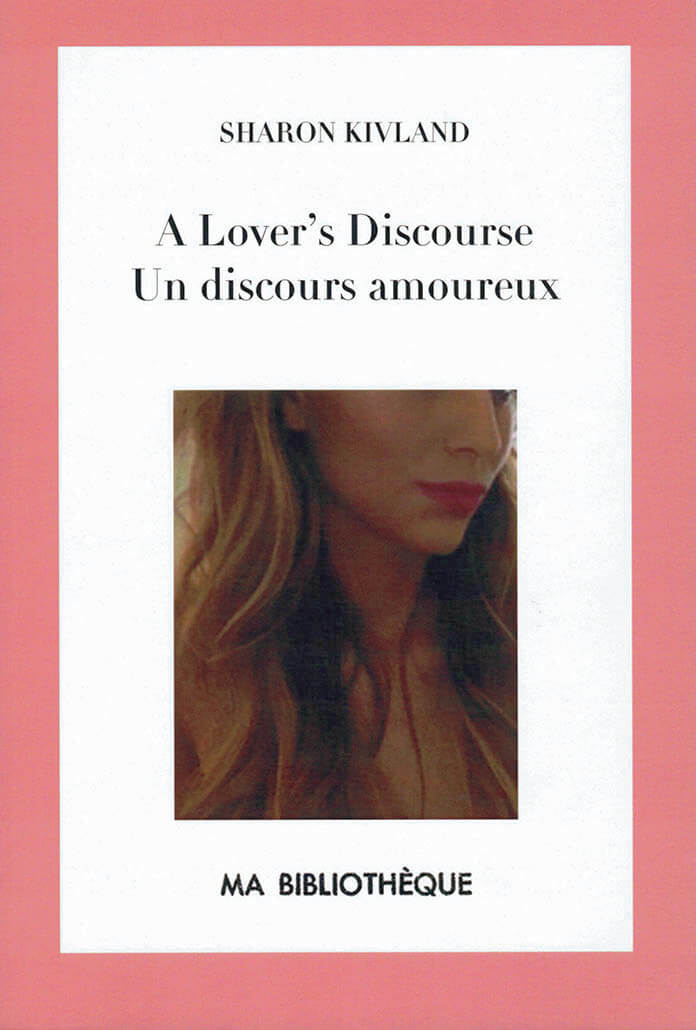
A Lover's Discourse
Language: English

Language: English

The straplines of a number of advertisements drawn from magazines of the 1950s are turned into drawings, as though a particularly vain and narcissistic woman speaks (as of course she does), She is ‘en pleine forme’ of her beauty. (2016).
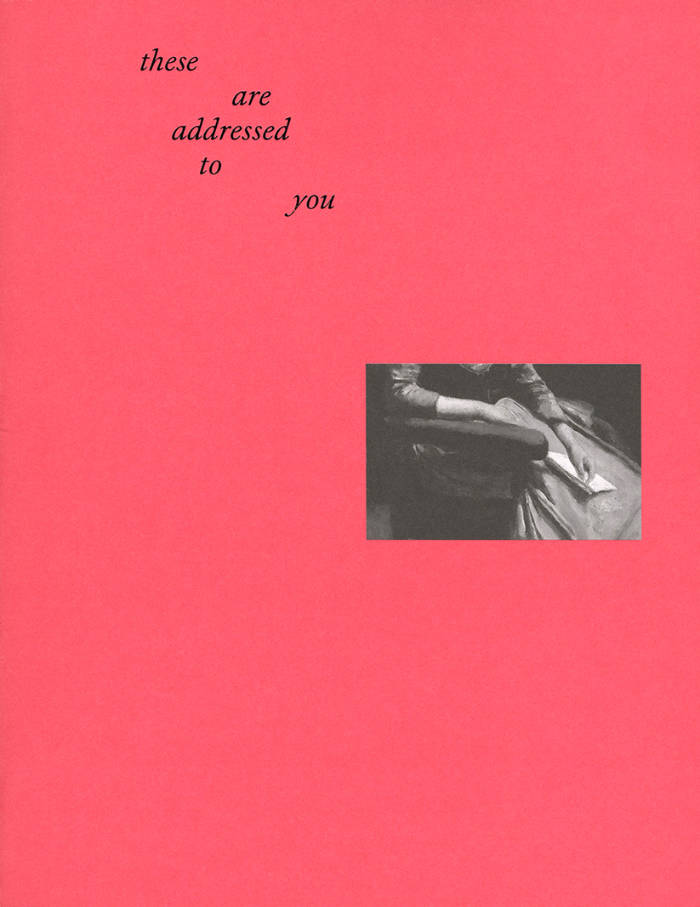
A collection of twenty-six abécédaire missives by Sharon Kivland, written and sent daily to the editors (MS & AWL) between Friday 7 February and Tuesday 4 March 2025. Interjected with melancholic ‘Mes horizons’ postcard erasures and an insert of abcedminded replies by Matthew Stuart titled ‘A Letter Always Suggests a Word’, this publication is both a standalone edition and precursor to BFTK#8, which focuses on letters (alphabets) and letters (correspondence).
‘These are Addressed to You’ addresses what it means to be addressed and to address, to write with love and scorn, to seal with a kiss and conceal impressions and hair within a letter’s folds, to inscribe with ink and thread, to speak with and to those we admire. Drawing on / from Freud and Lacan, Joyce and Carringdon, Camille Corot and many more, these letters are about writing and reading, about language falling and bumping you on the head.

“I wrote (more or less, for promises are always hard to keep, even those made to oneself ) for five days a week for a year. I wrote no more than a page, or rather, I wrote only for the length of the analytic hour, fifty minutes (though I also practiced the variable session at times)… I followed Freud’s model of train travel for his theory of free association, acting ‘as though, for instance, [you were] a traveller sitting next to the window of a railway carriage and describing to someone inside the carriage the changing views which [you] see outside’. As for my characters, many of their names begin with A. Some of these women exist or existed, others are from fiction, or write fiction. Some are friends or acquaintances. None are credited but a keen reader could recognise many of them. I invented nothing. I am the aleph.”
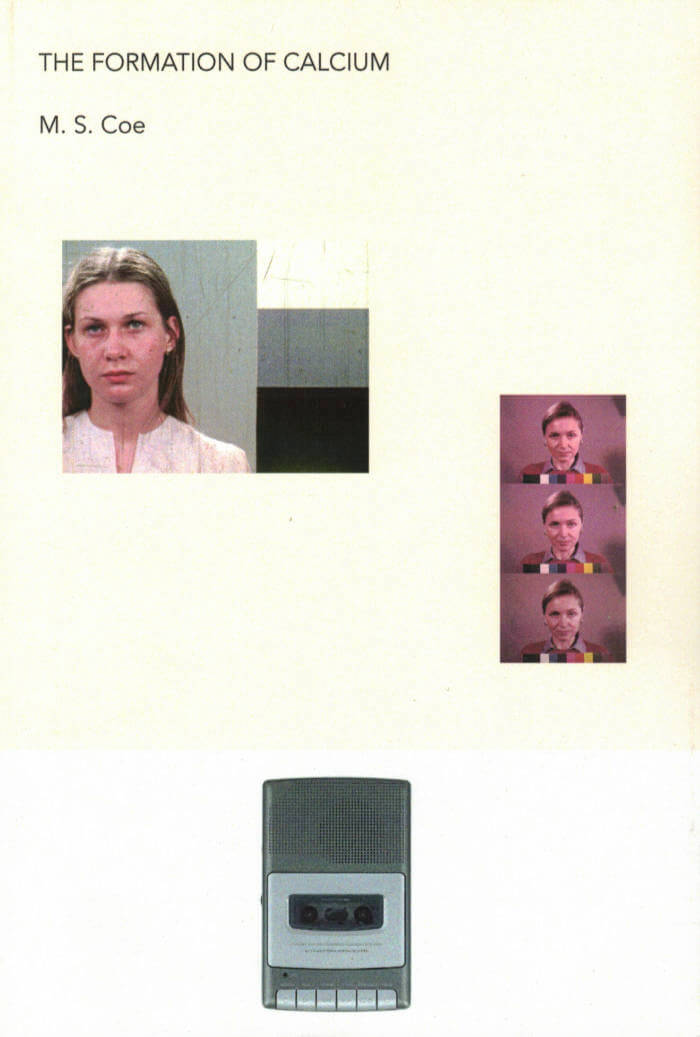
A horror story of one woman's awful reinvention, M. S. Coe's The Formation of Calcium is disturbingly funny and completely unexpected.
Middle-aged Mary Ellen Washie has finally freed herself of her stultified past life in western New York state and moved to Florida. With the husband she's grown to hate firmly in her rearview mirror, and all ties to her family cut off, she changes her name, bleaches her hair, and befriends Natalie, a seemingly kind, martini-loving woman whom she promptly begins to manipulate. As her machinations propel her beyond the brink of who she used to be, Mary Ellen seeks to unburden herself—but not one to sit down with pen and paper, she narrates the events of her new life into a cassette tape recorder, giving each tape an innocuous name to keep the curious away. A riveting account of one woman's awful reinvention, M. S. Coe's new novel is disturbingly funny and completely unexpected. With elements of pulp noir and confessional literature, The Formation of Calcium depicts the bland misery of modern American life as one woman seeks her own ill-fated transformation.
Born in Las Vegas, Nevada, M. S. Coe is an American writer living in Guadalajara, Mexico. After she graduated with an MFA in creative writing from Cornell University, Clash Books published her first novel, New Veronia, in 2019. Coe's stories have appeared in The Antioch Review, Cosmonauts Avenue, Electric Literature, Nashville Review, Waxwing, and elsewhere. She has held residencies from the Herbert Hoover National Historic Site, Petrified Forest National Park, and Ora Lerman Trust.

Vesicapiscis details a poetics of self-reflection / self-projection. What cannot be defined is pulled into the body, examined, dissected, regurgitated. Its form is prodded and rearranged. Every word / phrase / sentence is suseptible to mutation. And these mutations inevtiably proliferate onto the speaker's tongues, their throat, deep into their nervous system. Language is a virus, and as such, it must be studied.
Here we are, at the abyss.

As a stretch of land cultivated for crops to grow, a field evokes sensuous associations of smells, turned soil, exposure to weather. In a sense, fields ground our entire sedentary civilization and the cultures it gave rise to. At the same time, the field is where bodies fall in battle, the site that hosts the perishing of things.
Interweaving strands of autobiography with mythological and cultural tropes, Julien Bruneau explores the field as a metaphor rich with meaning and possibility. How do we inhabit fields and their furrows? How in turn do their history and imagination traverse us? As if it were a dance on the page, Fields invites the reader to encounter, think and feel our entanglement with space and places.
Julien Bruneau is an artist working with dance, presence, drawing and writing. His interest lies in the dynamic interplay between interiority and the collective.
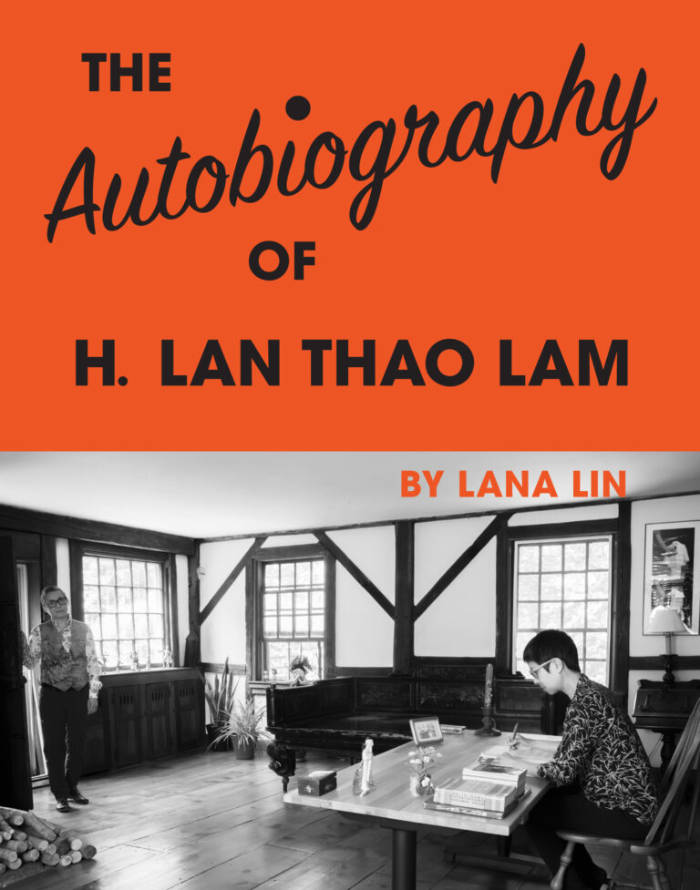
Situated between memoir, social criticism, and conceptual art, The Autobiography of H. Lan Thao Lam is an incisive response to a modernist classic and an affecting exploration of the poetics and politics of our times. "We are supposed to know where we are with biography and autobiography, they are the literary equivalents of the portrait and the self-portrait," writes Jeanette Winterson about Gertrude Stein's 1932 classic, The Autobiography of Alice B. Toklas. By narrating her own story from the perspective of her partner, Stein invented a literary form that was both intimate and uncanny, blurring lines of authority and identity as it winds through a story of two women living and loving together through a tumultuous moment in history. Almost a century later, experimental filmmaker and artist Lana Lin has resurrected Stein's project to tell another story of queer love, life, and artistic collaboration in a differently discordant age. At heart a candid chronicle of her partner Lan Thao's life journey from Vietnam during the war and her own troubled history as a gender-queer Taiwanese American, Lin's Autobiography draws in subjects as varied as photography, tropical fruit, New York real estate, and queer theorist Eve Sedgewick's eyeglasses, weaving a landscape of living that is also a critical investigation of race and gender in our time.
Lana Lin is a writer, artist, and filmmaker based in New York and Connecticut. She is the author of the book Freud's Jaw and Other Lost Objects: Fractured Subjectivity in the Face of Cancer and film and video works including The Cancer Journals Revisited. Her various works and collaborative projects (with Lan Thao Lam as "Lin + Lam") have exhibited at festivals and art and educational spaces throughout the world, including the Museum of Modern Art, Whitney Museum, and New Museum, New York; The National Gallery of Art, Washington, D.C.; Gasworks, London; the Taiwan International Documentary Festival and Taiwan Film and Audiovisual Institute, New Taipei City; Arko Art Center, Korean Arts Council, Seoul; and the 2018 Busan Biennale. Having had three years of psychoanalytic training before dropping out, she sometimes still dreams of becoming a psychoanalyst one day.
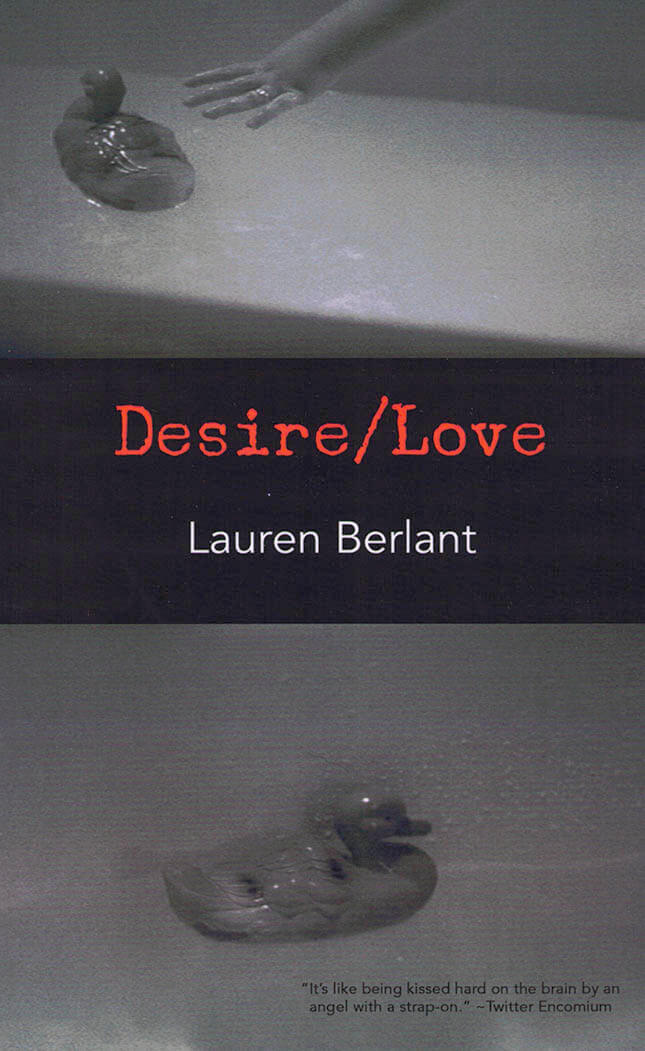
In this small theoretical novella-cum-dictionary entry, Lauren Berlant engages love and desire in separate entries. In the first entry, Desire mainly describes the feeling one person has for something else: it is organized by psychoanalytic accounts of attachment, and tells briefly the history of their importance in critical theory and practice. The second entry, on Love, begins with an excursion into fantasy, moving away from the parent-child structure so central to psychoanalysis and looking instead at the centrality of context, environment, and history. The entry on Love describes some workings of romance across personal life and commodity culture, the place where subjects start to think about fantasy on behalf of their actual lives.
Whether viewed psychoanalytically, institutionally, or ideologically, love is deemed always an outcome of fantasy. Without fantasy, there would be no love. Desire/Love takes us on a tour of all of the things that sentence might mean.